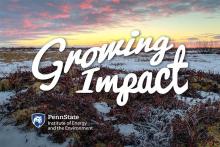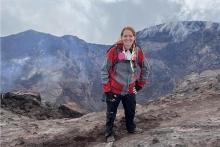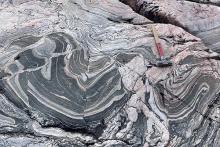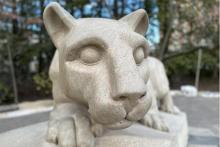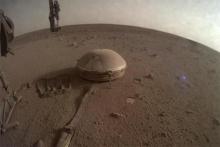In the latest episode of Growing Impact, Anastasia Piliouras discusses how thawing Arctic permafrost is affecting rivers and communities in the region.
Christelle Wauthier, associate professor of geosciences. was appointed as the associate director for the Institute for Computational and Data Sciences.
Ancient, expansive tracts of continental crust called cratons have helped keep Earth’s continents stable for billions of years, even as landmasses shift, mountains rise and oceans form. A new mechanism proposed by Penn State scientists may explain how the cratons formed some 3 billion years ago, an enduring question in the study of Earth’s history.
The Erickson Discovery Grant, which funds independent research projects for undergraduate students, has been awarded to 43 recipients, including Alexander Czeczulin, this year.
If liquid water exists today on Mars, it may be too deep underground to detect with traditional methods used on Earth. But listening to earthquakes that occur on Mars — or marsquakes — could offer a new tool in the search.
EMS has announced the appointment of five new members, including Mary Reinthal, to the Graduates of Earth and Mineral Sciences (GEMS) board of directors, effective July 1.
Penn State graduate student Erik Schoonover, a doctoral candidate in geosciences in the College of Earth and Mineral Sciences, was recently awarded the Big Ten Academic Alliance Smithsonian Fellowship Award.


